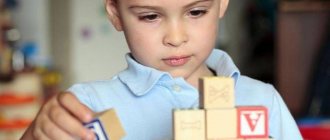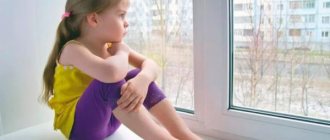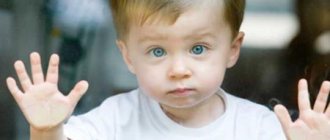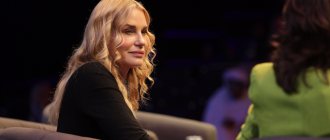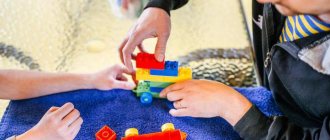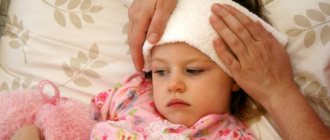Autism is a general developmental disorder and typically manifests itself during the first three years of a child’s life. Very often we hear about childhood autism or early childhood autism. It is worth remembering, however, that children diagnosed on the autism spectrum become adults with autism. Children who exhibit symptoms of autism at the age of 5-6 years receive a diagnosis of autistic autism.
However, in adults who behave strangely and have problems in social relationships, psychiatrists are very reluctant to recognize autism. Problems for adults despite the lack of relevant research on autism. They are trying to justify it differently and look for a different diagnosis. Autistic adults are often considered eccentrics, people with an unusual type of thinking.
Disease or not
Autism has been known in medicine for more than 100 years, but doctors still cannot specify whether this deviation is a disease. Autistic disorder refers to pathologies of a person’s mental state, which in itself remains not fully understood.
Autism is observed in children much more often than in adults. The most pronounced deviation of psycho-emotional development is between the ages of 2 and 10 years . During the transition period, pathology manifests itself less intensely.
The autistic condition is characterized as a disorder of the child’s personal qualities, in which problems with socialization and development are observed.
An autistic person prefers being alone and doing one thing rather than running around with children and playing various games.
Due to the fact that all disorders have a psycho-emotional orientation, many doctors are of the opinion that autism is not a disease, but only a mental type of person.
Depending on the age, you can observe different symptoms of how autism manifests itself in a child.
Children suffering from this disease restrain all their emotional manifestations within themselves, therefore, as a rule, they are withdrawn, do not make contact with others and have problems with socialization. Often the child tries to isolate himself from everyone, including his parents .
It is easier to diagnose signs of autism in children 2 years old, since it is at the age of 2–5 years that the child acquires the maximum amount of knowledge and skills.
If there are problems with the speech, physical, mental and emotional development of the baby, then parents should not refer to his individuality, but turn to specialists.
It is worth noting that autistic children draw well, love logic games and mathematics, but cannot learn the basics of reading, writing, etc. Only a professional doctor can assess the child’s condition.
Symptoms of Autism in Adults
The puzzle is a recognized symbol of autism
Autism is a mysterious disease, with a very complex and difficult diagnosis, and largely unknown causes. Autism is not a mental illness, as some people believe. Autism spectrum disorders are biologically determined neurological disorders in which psychological problems are secondary.
How does autism manifest itself? It causes difficulties in perceiving the world, problems in social relationships, learning and communicating with others. Symptoms vary in intensity for every autistic person. Most often, people with autism show disturbances in perception, feeling touch differently, and perceiving sounds and images differently. They may have hypersensitivity to noise, smells, and light. Often exhibit less sensitivity to pain.
Another way of seeing the world is that autistic people create their own inner world - a world that only they can understand.
The main problems of people with autism include:
- problems with the realization of connections and feelings;
- difficulty expressing one's emotions and interpreting the emotions expressed by others;
- inability to read nonverbal messages;
- communication problems;
- avoid contact with eyes;
- They prefer a constant environment and do not tolerate changes.
People with autism have specific language impairments. In extreme cases, autistic people do not speak at all or begin to speak very late. They understand words exclusively in the literal sense. They are unable to grasp the meaning of jokes, hints, irony, sarcasm, and metaphors, which makes socialization very difficult.
Many people with autism speak in ways that are inappropriate for the context of the situation, despite the fact that the environment is generally listening to them. Their words have no color or are very formal. Some use stereotypical forms of communication or speak as if they are reading to management. Autistic people have difficulty starting conversations. They attach too much importance to certain words and overuse them so that their language becomes stereotypical.
Children often have trouble using pronouns appropriately (I, he, you, we, you). While others exhibit pronunciation problems, have incorrect voice intonation, speak too quickly or monotonously, poorly emphasize words, “swallow” sounds, whisper under their breath, etc.
Some people on the autism spectrum exhibit obsessive interests, often very specific ones, in rote memorization of certain information (eg, birthdays of famous people, car registration numbers, bus schedules). In others, autism may manifest itself as a desire to order the world, to bring the entire environment into certain and unchanging patterns. Every “surprise”, as a rule, causes fear and aggression.
Autism is also a lack of flexibility, stereotypical behavior patterns, impaired social interaction, difficulty adapting to standards, self-centeredness, poor body language or sensory integration disorders.
It is difficult to standardize the characteristics of an adult with autism. However, it is important that the number of cases of autism is growing from year to year and at the same time many patients remain undiagnosed, if only because of poor diagnosis of autism.
What could be the reasons
Little patients with artistic disabilities are considered special and are called “rain children.” The pathology has been observed all over the world for a long time, but so far medicine has not been able to determine the exact cause of autism in children.
Most psychologists believe that the impact is caused by a number of factors:
- gene modification;
- heredity;
- pathologies of the central nervous system (congenital or acquired);
- metabolic failures;
- hormonal disorders;
- bacterial or viral infections;
- mercury poisoning;
- reaction to vaccination;
- excessively long use of antibiotics;
- exposure to chemicals on a woman’s body during pregnancy.
It should be noted that the factors listed above do not always become the impetus for the development of the disease. This disease is an individual reaction of the child's body .
Parents are obliged to pay attention to the first signs of autism: the child almost does not express emotions, does not rejoice at the arrival of his father or mother, does not smile before the start of treatment
At what age does autism appear in children?
Usually it makes itself felt up to three years. Children with this disease do not lag behind their peers physically and are no different from them in appearance. However, the same cannot be said about their behavior. They have special preferences.
Their actions, games and reactions to what is happening are not always clear to others. Most often, parents quickly notice all these oddities.
Not so long ago, autism was considered a very rare disease. However, over the past 20 years there has been a sharp uptick and the number of such cases has unexpectedly increased significantly. Such changes can be compared to an epidemic.
According to WHO, for every 160 healthy children in the world, there is one child suffering from autism. Every year the number of sick children increases by 10-17%. This is a sad and even frightening statistic.
Despite the increasing rate of widespread prevalence of autism in children, diagnostic procedures are imperfect. Doctors find it difficult to make an accurate diagnosis for very young patients and suggest waiting until they are 3 years old.
In addition, some “blank” spots can be traced when searching for possible risk factors. The identified causes are only probabilistic in nature, since at the moment it is not possible to clearly outline the circle of those factors that lead to the occurrence of the disease in question.
Autism
is a disorder resulting from impaired brain development and characterized by severe and pervasive deficits in social interaction and communication, as well as restricted interests and repetitive behaviors.
How does autism manifest?
Symptoms of autism in children are sometimes difficult to notice, as the form of the disease can be mild. With a complex type of pathology, the signs are, of course, more pronounced.
The peculiarity of the disease is the individuality of its manifestation. According to experts, the first signs of autism appear in children under 1 year of age, but since the development of a child under 2 years of age does not always correspond to norms, it is almost impossible to establish a diagnosis.
Signs of autism in a 3-year-old child can be assessed in three main areas: socialization, speech and behavioral skills.
An autistic child often thinks about something of his own and does not react to others
Problems with socialization:
- lack of emotions without changing facial expressions, postures and gestures;
- turning your gaze away from the person you are contacting;
- lack of contact with peers and interest in communicating with them.
Speech problems:
- delay in the development of speech skills;
- inability to conduct a dialogue;
- constant repetition of the same phrases and sounds;
- speaking “your own language”;
- lack of attention.
Behavior problems:
- performing actions that are not required in a particular situation;
- excessive constant aggressiveness or passivity;
- lack of interest in role-playing games;
- incorrect perception of objects and toys.
Many parents become depressed because they do not see a way out of the situation, which is repeated day after day.
There are a number of special tests, based on the results of which the doctor determines whether the child suffers from an autistic disorder.
Based on the symptoms described above, no specialist can make a diagnosis.
Signs of autism in children can be seen in the photo by paying attention to facial expressions, which, as a rule, do not correspond to the situation.
If, during daily observation, parents notice signs and symptoms of autism in children, it is recommended to contact a psychologist or neurologist for diagnosis.
Forms of autism
Asperger's syndrome. One form of autism is Asperger's syndrome. This syndrome is a hidden dysfunction, and therefore it cannot be determined at first glance whether a person has developmental disorders. Most people easily perceive facial expressions, gestures and distinguish intonations in the voice, but a person with Asperger's syndrome cannot interpret such signs. This syndrome has many common characteristics with classic autism, but an important difference is that there are no delays in speech development in Asperger syndrome. Also, unlike autism, people with this syndrome are much better able to learn. With the right support and activities, a person can live a full, independent life.
People with Asperger's syndrome have difficulties in the following three areas: imagination, interaction with others and communication. As for imagination, it is difficult for such people to understand and imagine the point of view of other people, to interpret thoughts, feelings and actions; creative activity is strictly limited and has a certain sequence and repetition.
With difficulties in interaction, it is very difficult for people with Asperger syndrome to create new acquaintances and maintain long-term friendships, since they are quite closed and give the impression of an indifferent person; may violate some social norms that other people follow without thinking, for example, standing close to a stranger or starting an inappropriate conversation.
Another difficulty faced by those diagnosed with Asperger's syndrome is the inability to express themselves socially and emotionally, there is no understanding of tone of voice, gestures, facial expressions; do not accept jokes, sarcasm, anecdotes; They have difficulty deciding when to start and end a conversation.
As for the cause of this syndrome in humans, there is still no accurate information on this matter. Research shows that it is most likely a combination of various factors - environmental and genetic - that can cause brain problems.
Atypical autism. If a child exhibits general signs of developmental delay, then doctors talk about atypical autism. Its distinguishing feature from early childhood autism is that the most obvious symptoms begin to appear only after three years. A child with this diagnosis may exhibit all the signs of autism that are characteristic of early childhood, or may not have all the symptoms of this disease. This, first of all, applies to children who have severe mental retardation and impairments in the understanding and development of speech. In this case, we can talk about intellectual underdevelopment with features of autism.
There are suggestions that autism is a combination of both genetic and environmental factors
Comparative characteristics for young children
In different age categories, “rain children” may exhibit different signs.
The table below shows characteristic early signs of autism in children under 2 years of age, as well as symptoms of PED (psycho-emotional development) of an older child (using the example of a comparison between a patient and a healthy person).
| Age | Healthy | Autistic |
| 0-2 years | looks into the eyes | does not concentrate his gaze |
| reacts to loved ones | lack of reaction to relatives | |
| prefers physical contact | does not want to sit on hands, etc. | |
| shows emotions | emotionless | |
| reacts to his name | doesn't respond to name | |
| likes to play | not interested in games | |
| 3-5 years | actively answers questions | ignores questions |
| shows interest in new things | indifferent to everything new | |
| noticeable changes in mental and mental development | developmental abnormalities are observed | |
| begins to adapt easier | falls into a panic state when the situation changes | |
| learns everything quickly | difficulty learning even simple skills | |
| has no fears of natural objects | unusual fears (toys, certain colors, etc.) | |
| varied speech | repeats the same words monotonously | |
| interests are becoming more diverse | is interested in only one type of activity, but the interest in it is excessively thorough |
The signs of autism in 7-year-old children are most pronounced, since the child begins to clearly stand out from other children with characteristic behavioral features.
Some “rain children” have unique knowledge in the field of mathematical sciences, but are completely illiterate in reading and writing, and are also very withdrawn.
Each autistic child is individual, so general symptoms can only be carried out for informational purposes.
Iskrik Anastasia Valerievna, Osteomed, neurologist, Moscow
Autism is a difficult condition to cope with. For successful treatment and achievement of positive results, you should consult a doctor in a timely manner.
It is necessary to exclude self-medication, not leave the child alone with his problem and constantly follow all the recommendations of the attending physician.
The best option would be to visit specialized centers.
Young patients may have different forms of pathology. Depending on the characteristics of the disease and its severity, specialists determine the forms of autism in children.
In medicine, I classify pathology into three main types (syndromes):
- Kanner;
- Asperger's;
- Retta.
Autism in children is also divided into atypical and disintegrated. There are several types of disease based on the nature of the disorder.
How is autism diagnosed?
Externally, such symptoms in newborns cannot be determined. However, scientists have been working for a long time to identify signs of autism in newborns as early as possible.
Most often, parents notice the first signs of this condition in children. Especially early autistic behavior is determined by those parents whose family already has small children. Those who have autism in their family should take into account that this is a disease that should be tried to be diagnosed as early as possible. After all, the earlier autism is identified, the greater the chances of such a child to feel adequately in society and live a normal life.
If childhood autism is suspected, diagnosis is carried out through interviews with parents, as well as studying how the child behaves in his usual environment. The following tests are used:
- Autism Diagnostic Observation Scale (ADOS)
- Autism Diagnostic Questionnaire (ADI-R)
- Childhood Autism Rating Scale (CARS)
- Autism Behavioral Questionnaire (ABC)
- Autism Evaluation Checklist (ATEC)
- Checklist for Autism in Young Children (CHAT)
The following methods are used:
- conducting an ultrasound of the brain - to exclude brain damage that provokes symptoms;
- EEG – to determine epilepsy attacks (sometimes these manifestations are accompanied by autism);
- testing the child’s hearing to rule out delayed speech development due to hearing loss.
It is important for parents to correctly perceive the behavior of a child who suffers from autism.
| Adults see | Is not | Perhaps it |
| Shows forgetfulness and disorganization | Manipulation, laziness, lack of desire to do anything | Lack of understanding of parents' or other people's expectations, high anxiety, reaction to stress and change, attempt to regulate sensory systems |
| Prefers monotony, resists change, gets upset by change, prefers to repeat actions | Stubbornness, refusal to cooperate, rigidity | Uncertainty about how to follow instructions, desire to maintain normal order, inability to assess the situation from the outside |
| Does not follow instructions, is impulsive, makes provocations | Selfishness, disobedience, desire to always be the center of attention | It is difficult for him to understand general and abstract concepts, it is difficult for him to process information |
| Avoids lighting and certain sounds, does not look anyone in the eye, rotates, touches, smells foreign objects | Disobedience, bad behavior | He has poor processing of bodily and sensory signals, high visual, sound, and olfactory sensitivity |
Diagnostics
If autism is suspected in children, signs, symptoms and causes can be determined through diagnosis. Doctors are involved in determining the diagnosis and treatment of the disease:
- pediatrician;
- neurologist;
- psychiatrist;
- speech therapist;
- psychologist.
Diagnostics consists of conducting tests that evaluate the child’s behavior and mental development, as well as undergoing hardware examination.
The test for autism in children is carried out in accordance with the age of the patient. Signs of autism in children aged 1.5 years are assessed using a special modified screening test. This test is used by specialists to diagnose patients under 3 years of age .
Signs of autism in a child 4 years of age and older are assessed:
- on the behavioral adequacy scale;
- Connors scale;
- diagnostic questionnaire.
Hardware examination is aimed at diagnosing the brain:
- MRI;
- EEG;
- Dopplerography.
Additionally, a genetic and gastroenterological examination may be recommended.
Diagnosis must be comprehensive, since some symptoms of autistic disorder are similar to diseases such as:
- schizophrenia;
- a brain tumor;
- hearing or vision impairment, etc.
Most pediatricians, when asked by parents how to recognize autism in a child, recommend closely monitoring the child’s behavior to assess its compliance with known standards.
One of the famous autistics was Vincent Van Gogh - a brilliant artist of the past
Prevention of autism
There are no strictly defined rules for the prevention of autism, but there are some recommendations from experts, using which parents can avoid the development of this disease in their child. Pregnant women and nursing mothers need to be very strict about their diet and try to avoid foods that contain GMOs. This also applies to artificial milk formulas.
Some children's bodies cannot process gluten, as it can cause depression. And products with such a component are contraindicated for a child with autism.
It is also worth paying close attention to the vaccinations given to your child, since modern vaccinations contain heavy metal compounds as a preservative. Children's bodies sometimes cannot cope with the vaccine, and mercury poisoning can occur. Signs of poisoning are similar to the main manifestations of autism in a child.
Treatment
The causes, symptoms and treatment of autism in children are directly related, since the fight against the disease is aimed at eliminating the signs and causes of the pathology.
In Russia, autism in children is treated mainly with methods developed by psychologists.
In the USA, where the number of “rain children” is, according to some sources, greater than in other countries, scientists are developing more and more new methods and treatment methods.
One of the newest ways to combat autism disorder is the use of stem cells.
Unlike foreign civilized countries, Russian families are forced to treat their children on their own, since Russian medicine does not recognize autism as a disease.
Elena Vladimirovna Saxonova, Prothero Clinic, neurologist, Moscow
Autistic children should undergo only comprehensive treatment. I recommend that all parents of their young patients not search for information on the Internet and not try to create their own methods.
It is better to consult a doctor in time and follow an individually developed program.
Therapy
Treatment of autism in children is carried out comprehensively. It is impossible to completely get rid of the pathology, but with a properly selected treatment regimen, significant results can be achieved by improving the patient’s condition.
Treatment is carried out only therapeutically. Surgical intervention can only be used when concomitant diseases are eliminated.
Therapy for autistic disorder includes:
- taking medications;
- hippotherapy;
- music therapy;
- massage treatments;
- therapeutic exercises (you can take care of your child from infancy and do exercises with him on a fitball).
A mandatory stage of treatment is education for children with autism . A professional specialist who knows the characteristics of autism should help the child overcome existing difficulties with mental development and attention.
Hippotherapy is a method of rehabilitation of autistic children and not only through horse riding
To solve problems with adaptation, control of emotions and perception of the world around us, music therapy and hippotherapy are recommended .
Music therapy refers to music lessons (preferably classical), as well as listening to classical music by the patient.
Hippotherapy – horse riding classes. It has been proven that contact with animals, especially horses, has a beneficial effect on a person’s psychological state , reducing aggression and eliminating barriers to communication with people.
Watch a video about how dolphin therapy affects an autistic person:
Drug therapy
Taking medications is necessary for complex forms of autism. Prescribed tablets to eliminate symptoms of exacerbation.
The following groups of drugs are prescribed:
- psychostimulants (to restore mental state in case of constant aggression);
- neuroprotectors (to normalize brain function);
- antipsychotics (to prevent attacks of psychosis);
- anticonvulsants (to prevent seizures);
- multivitamins (to support immunity).
You cannot purchase and give the drug to a child on your own. All medications are prescribed by a doctor only individually for each child . There is no general regimen of drug therapy for autistic disorder.
Massage and therapeutic exercises
Massage treatments are carried out by a professional and experienced specialist. The purpose of such procedures is to influence the nervous system, as well as increase the sensitivity of the patient’s skin.
The more often parents repeat the same actions, the more likely the autistic child will remember them.
Exercise therapy classes involve performing exercises that help the child get to know the potential of his own body, improve coordination, and strengthen physical capabilities.
It is contraindicated to engage in physical therapy for a child with a complex form of autism or if there are contraindications (comorbidities).
Recommendations
Autism in children is a complex disease that is impossible to cope with without the help of specialists. But medicine without parental support is also weak.
The entire complex of therapy should be carried out jointly by parents and specialists. Families with autism must be prepared for the fact that their special child will always need support .
In order for parents to be psychologically prepared for long-term (possibly lifelong) therapy, a visit to a psychologist is recommended.
Dobek Viktor Arkadevich, Dynasty, psychotherapist, St. Petersburg
I have been treating autistic people for about forty years. The effectiveness of treatment is influenced by the severity of the disease.
According to my observations, activities at home with parents, time spent in the company of other adults and children, unlimited attention to the child, visits to hippodromes, pools with dolphins and contacts with other animals have a positive effect.
For autistic children it will be useful:
- conducting daily educational games;
- accustoming to a sequence of actions;
- training in various skills.
It is necessary to take your child outside as often as possible and try to slowly teach him to contact other people.
In contrast to autistic children, there are hyperactive children who immediately attract attention. Read here what parents should do with such children.
Intelligence in autism
The level of intellectual development of people suffering from autism spectrum disorders varies. 60% of autistic people have below average intellectual abilities, up to 3-5% of “special” people are geniuses in a certain area.
Strengths of people diagnosed with autism:
- long-term memory abilities;
- ease of detailed perception of rules, theorems, sequences;
- early acquisition of written language, often earlier than speech skills;
- mathematical, musical, artistic talents;
- mastering a computer in childhood;
- passion for design.
The main task of parents and other adults around an autistic person is to search for and develop the child’s talents and useful skills.
Assessing the intellectual abilities of people with autism is difficult due to their reluctance or inability to communicate. There is no universal test to determine the level of intelligence. Doctors evaluate it based on long-term observations.
